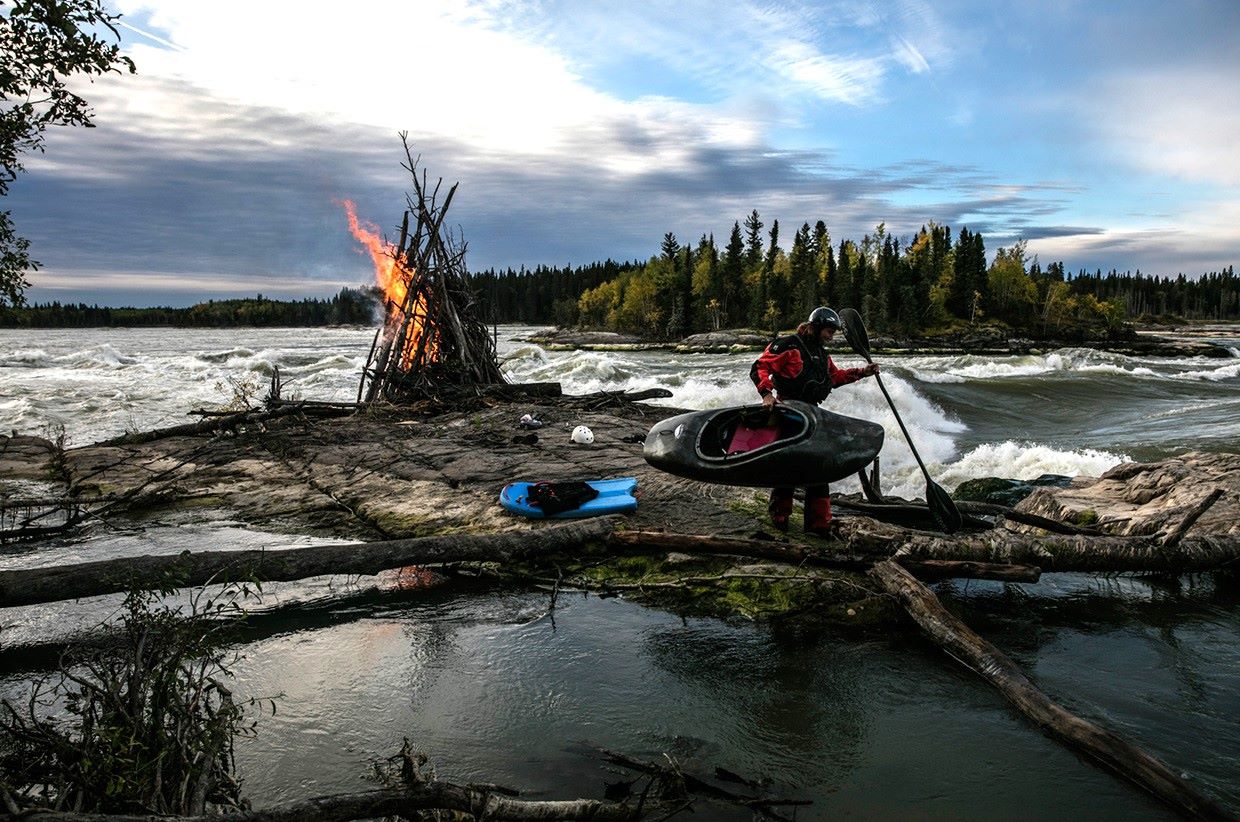
Have you ever wondered about the wonders of the Nelson River? This mighty waterway in Canada stretches over 1,600 kilometers, connecting Lake Winnipeg to Hudson Bay. But what makes it so special? From its rich history to its diverse ecosystem, the Nelson River has stories to tell. Indigenous peoples have relied on its waters for centuries, and it played a crucial role in the fur trade. Today, it's a vital source of hydroelectric power. Ready to dive into some fascinating facts? Let's explore the secrets and surprises of this incredible river.
Key Takeaways:
- The Nelson River, named after Lord Horatio Nelson, played a crucial role in Canadian history during the fur trade era, and it continues to be a significant part of the region's ecology and economy today.
- Stretching over 2,575 kilometers, the Nelson River supports diverse flora and fauna, hosts hydroelectric power stations, and holds profound cultural significance for Indigenous communities, while facing environmental challenges that require conservation efforts.
The Mighty Nelson River
The Nelson River is a significant waterway in Canada, flowing through the provinces of Manitoba and Saskatchewan. This river has a rich history and plays a crucial role in the region's ecology and economy. Let's dive into some fascinating facts about the Nelson River.
Historical Significance
The Nelson River has been a vital part of Canadian history, especially during the fur trade era.
- Named after British naval hero Lord Horatio Nelson, the river was a key route for fur traders in the 17th and 18th centuries.
- The river was first mapped by European explorers in the early 1600s, making it one of the earliest documented rivers in Canada.
- Fort Nelson, established by the Hudson's Bay Company in 1682, was one of the first trading posts along the river.
Geographical Features
Stretching over 2,575 kilometers, the Nelson River boasts some unique geographical features.
- Originating from Lake Winnipeg, the river flows northward into Hudson Bay.
- The river's basin covers an area of approximately 1.1 million square kilometers.
- The Nelson River is part of the larger Hudson Bay drainage basin, which is one of the largest in the world.
Ecological Importance
The river supports a diverse range of flora and fauna, making it an ecological treasure.
- The Nelson River is home to numerous fish species, including walleye, northern pike, and lake sturgeon.
- The river's wetlands provide crucial breeding grounds for migratory birds.
- The surrounding forests are rich in biodiversity, housing species like moose, black bears, and wolves.
Hydroelectric Power
The Nelson River is a powerhouse, literally, for Manitoba's energy needs.
- The river hosts several hydroelectric dams, including the massive Kettle Generating Station.
- These dams collectively generate over 3,500 megawatts of electricity, supplying power to much of Manitoba.
- The hydroelectric projects on the Nelson River have significantly contributed to Manitoba's economy.
Cultural Impact
The river has a profound cultural significance for Indigenous communities in the region.
- The Cree and Dene peoples have lived along the Nelson River for thousands of years.
- Traditional fishing and hunting practices are still carried out by Indigenous communities along the river.
- The river features prominently in Indigenous folklore and spiritual practices.
Environmental Challenges
Despite its importance, the Nelson River faces several environmental challenges.
- Climate change is affecting the river's flow patterns and water levels.
- Industrial activities, including mining and logging, pose threats to the river's ecosystem.
- Pollution from agricultural runoff and urban areas is impacting water quality.
Recreational Activities
The Nelson River offers a variety of recreational opportunities for outdoor enthusiasts.
- Canoeing and kayaking are popular activities on the river, thanks to its scenic beauty and challenging rapids.
- The river's abundant fish populations make it a favorite spot for anglers.
- Birdwatching is another popular activity, with many rare and migratory species frequenting the river's wetlands.
Economic Contributions
The river plays a vital role in the local economy beyond hydroelectric power.
- The Nelson River supports commercial fishing operations, providing livelihoods for many residents.
- Tourism related to the river's natural beauty and recreational opportunities is a growing industry.
- The river's water is used for irrigation, supporting agriculture in the region.
Conservation Efforts
Efforts are underway to protect and preserve the Nelson River for future generations.
- Various conservation programs aim to restore and maintain the river's natural habitats.
- Indigenous-led initiatives are working to safeguard traditional lands and practices along the river.
- Government regulations are in place to monitor and control industrial activities affecting the river.
Final Thoughts on Nelson River
Nelson River isn't just a body of water; it's a lifeline for the regions it flows through. From its historical significance to its ecological importance, this river has shaped the landscape and the lives of those around it. The Hudson Bay Company relied on it for trade, and today, it powers communities with hydroelectric energy. Its biodiversity supports countless species, making it a crucial part of the ecosystem. Whether you're fascinated by its geological features or its role in indigenous cultures, Nelson River offers a wealth of knowledge and beauty. Next time you think about rivers, remember this mighty waterway and its contributions to history, nature, and modern life. It's more than just a river; it's a testament to the power and resilience of nature.
Frequently Asked Questions
Was this page helpful?
Our commitment to delivering trustworthy and engaging content is at the heart of what we do. Each fact on our site is contributed by real users like you, bringing a wealth of diverse insights and information. To ensure the highest standards of accuracy and reliability, our dedicated editors meticulously review each submission. This process guarantees that the facts we share are not only fascinating but also credible. Trust in our commitment to quality and authenticity as you explore and learn with us.


